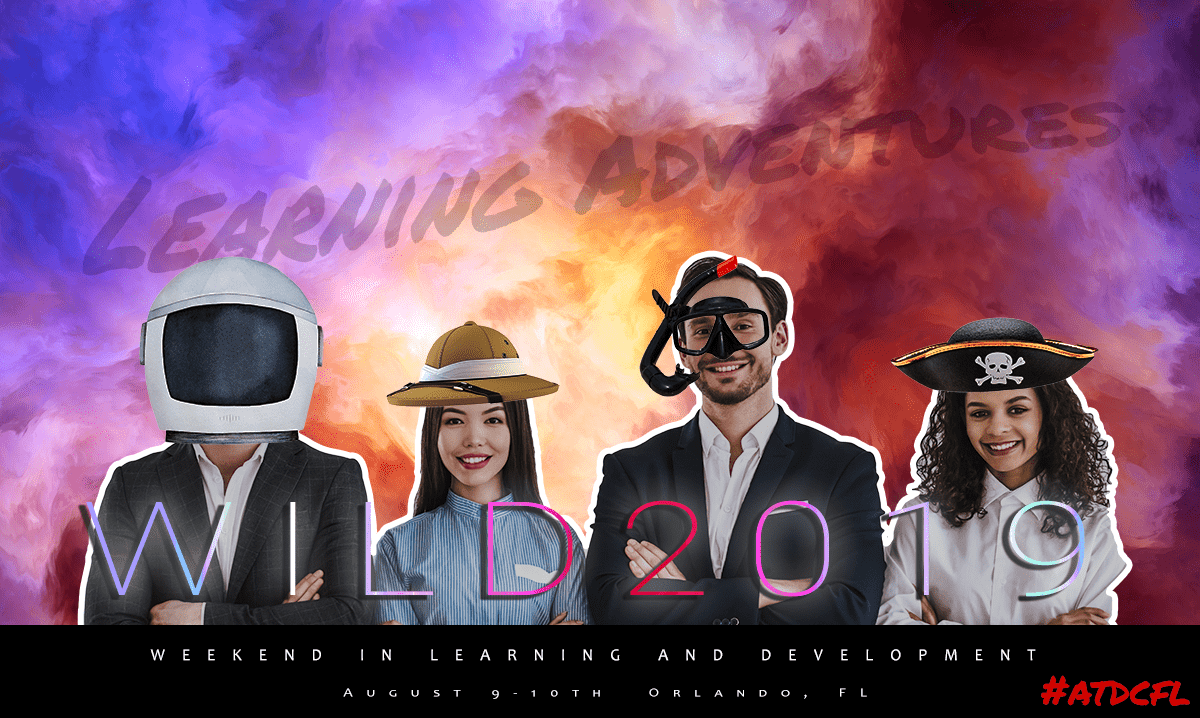

ATDCFL's WILD2019 is packed with amazing speakers, 12 concurrent sessions including speaking and hands-on workshops. This is a great learning venue for anyone working as a teacher, facilitator, instructional designer, eLearning developer, manager or director of a learning function in academic or corporate settings. This year ATDCFL begins a new era of excellence by highly elevating its membership experience with premium industry thought leaders and technology experts. WILD is a 2-day event:
You have the option to attend both days or either one separately.
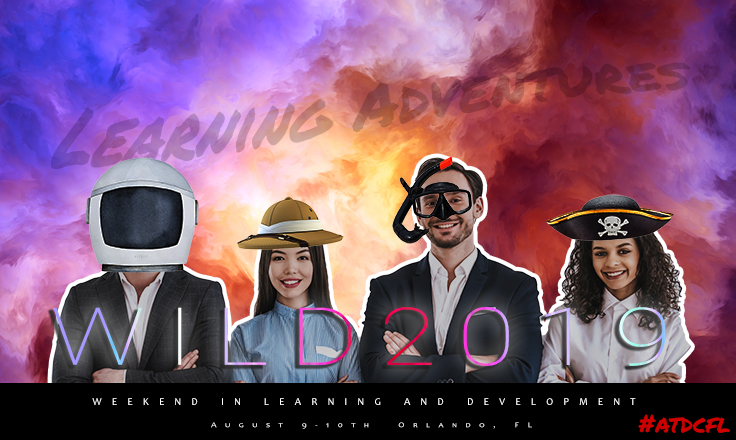
Jordan is an award-winning talent development leader and speaker with a passion for helping people do what they do, better. As the Head of Leadership & Talent Development at Addition Financial (formerly CFE Federal Credit Union), he leads the organization’s talent strategy and an ever-expanding team in executing their mission to “deliver transformative learning experiences that elevate our people, company, and community”. He also hosts their weekly podcast for employees and by employees, WeConnect. Jordan has recently gained great popularity for his performances at Orlando HRDisrupt and his sold-out Purposeful Play workshops. We are very honored and excited to have Jordan start our WILD2019 conference!

Myra is an award-winning instructional designer, TedX speaker & author. She's is a seasoned L&D professional who has helped large organizations implement and integrate new and emerging technologies like, interactive video, augmented reality, virtual reality, and conversational AIs into the learning ecosystem. Her goal is to remove the fear of technology from the equation. She helps learning professionals develop the knowledge and future-oriented skills innovate and deliver effective learning experiences that align with an organization's business goals. Myra is employed at Amazon and she has earned an MBA, MSEd and a Bachelors of Computer Science.
What is Augmented Reality? When should I use it? How is Augmented Reality (AR) being used by other companies? How hard it is to design and develop an AR learning solution? How do I prototype an AR solution? These are the questions that many ask as AR gains momentum in the learning development space. In this hands-on session, you’ll find out how to design and create low-cost AR learner experiences that pack a punch. You’ll explore a wide range of budget-friendly AR authoring tools, learn about their strengths and weaknesses, and identify how to design around them. You’ll also investigate which AR experiences work best across different learning solutions, allowing you to target the experience you create to the context and situation it will be used in.
Voice Assistant Devices, like Google Home, are beginning to be adopted in homes and the workplace. It's also a disruptive game changer in the learning and development space. Learning professionals need to begin considering adoption of this tech and integration into the learning ecosystem as learning support in the daily workflow. In this hands-on session, explore strategies for creating an effective voice assistant skill; identify learning goals; and make decisions about the data that should be collected to measure competency against the learning learning goals. We’ll create a simple Alexa, voice assistant skill, no coding skills required. We’ll then create a workflow to create xAPI statements and connect the voice assistant skill to an LRS to capture learner interactions. We will explore best practices, discuss key considerations and debrief on the overall creation and use of voice assistant devices in the workflow. Participants will leave this session with a working prototype that can be use to facilitate a demo within their organizations and will be able to discuss the key consideration and potential impact of the integration of a voice assistant device in the workflow.

Become a member and enjoy WILD plus 20+ events in digital and F2F format for a year.
Enjoy concurrent sessions and fun networking activities with lunch included.
A high quality experience at a fraction of the cost. Treat your team to a great experience.

Room 121 09:15-10:15
Organizations face many threats that can compromise data, cripple our technological systems, prevent day-to-day operations. Phishing is the primary method cybercriminals use to insert ransomware, spyware, and other malware into an organization’s computer system to cripple the organization and/or steal sensitive data. I would like to present how organizations can implement an information security training and awareness program to educate their workforce and reduce risks.

Room 122 09:15-10:15
More and more companies are including Tuition Assistance as part of their Talent Development program. But for most the program is comprised of a form and a check. How can you turn Tuition Assistance into a proactive strategy that produced ROI for you, the employee and your company?This presentation will provide 10 actionable steps that can improve outcomes, reduce costs and drive performance.With 37 million adults with some college and no degree, tens of millions more looking for additional schooling, and student debt out of control, tuition assistance programs are an underutilized resource deserving far more attention and focus.
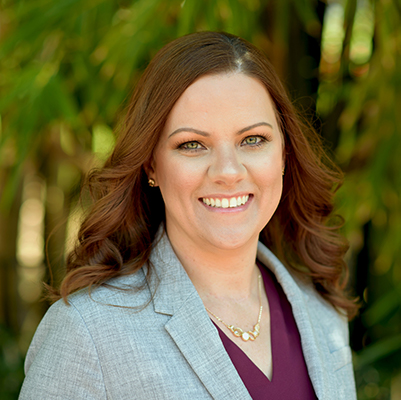
Room 127 09:15-10:15
As learning & development professionals, how do we move from being order-takers to being valued, strategic business partners within our organizations? It starts with aligning our work with the organization's overall goals and being able to discern when training is or is not the best way to meet a particular need. In this session, you'll learn how to use some practical tools to analyze your organization's needs, take employees’ performance to the next level, and ensure that your L&D work has maximum impact where it matters.

Room 121 10:30-12:00
Positive psychology is the scientific study of what makes life worth living and individuals flourish... This workshop is about cultivating a facilitation style doesn't just teach, but makes meaning, using the key tenants of Positive Psychology: Mindfulness, Growth Mindset, and Courage.

Room 122 10:30-12:00
"According to the Harvard Business Review (HBR), companies spent millions of dollars on eLearning and yet they are not happy. Why? Because the eLearning courses in today's world are not standing out as they supposed to be. One of the most common reason experts found is not having a good relationship between SMEs and Instructional Designers. Although, they both have great potential and bring so much on the table. SMEs knows their technical proficiency, but they are not always familiar with the learning process. Likewise, instructional designers know the science of learning but often unfamiliar with the technicalities of the subject or topic. Finding the best ways to establish a common ground between SMEs and Instructional designers is possible if you know the best techniques to avoid challenging situations. This session will help you to discover techniques to handle critical situations and aligning the thought process between SME and ISD . You will learn how to set a clear expectation in kick-off meeting. During the session, there will be a role play activity between the participants as SMEs and Instructional Designer characters to examine the communication of critical situations and lean towards common goal. This session concludes with 5 useful tips to build a good partnership between SMEs and Instructional Designer.

Room 127 10:30-12:00
This session will walk you through the process utilizing Adobe XD to prototype the instructional designer’s storyboard. You will discover how Adobe XD can improve learner experience by enhancing design choices and testing user interaction. Further, you will see how Adobe XD can act as a compliance tool to ensure section 508 standards for accessibility are being meet. You will also, learn how Adobe XD can be implemented into your design process and streamline development in an authoring tool. Additionally, you will see how the implementation of Adobe XD can support organizational cohesion.
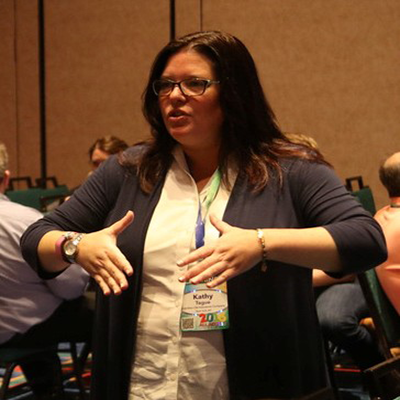
Room 121 01:15-02:15
Whether you’re new to leading L&D or a seasoned veteran, attention to metrics and measurement has never been more critical. In fact, they are THE elements that can make or break the future of our discipline. This session will review a fresh approach to measuring impact sharing lessons learned from the frontline while implementing a new sales onboarding initiative.

Room 127 01:15-02:15
Storytelling is hot right now and for good reason. But while it may be hot, it’s certainly not new. Our brains have been wired to pass along information through story. So why wouldn’t we use it more when we’re designing speeches and training programs? In Storytelling for Trainers, James Robbins walks you through the steps to crafting and presenting compelling stories that create powerful learning experiences. In this session, James will draw upon his expertise from over 2,500 speeches from the stage to help you architect stories that are bound to move hearts, sway minds, and inspire new ways of thinking.

Room 127 01:15-02:45
According to ATD’s State of the Industry report, organizations spent $1,296 per employee on learning in 2017. Yet many companies are not happy with the return of investment they receive from training expenditures. Organizations aren’t happy with the ROI because current courses are not driving the results they’re supposed to be achieving. Driving performance via eLearning courses seem to be a biggest challenge these days. How can we solve this problem? As an Instructional Designer, this is our main responsibility to identify the problem first and then come up with the best solution. If you are a training or LMS administrator, you would know that when learner finishes the course, it shows completed in the LMS with the End-of-Course scores. Either of them will not help you to identify the skill gap. For companies, it’s imperative to know how performance is measured and how eLearning courses could help. Finding a common denominator between performance and learning would help instructional designers to analyze the gap. In this session, you will explore the model separating knowledge and skill based learning from the course. You will learn how I created personas with must-have skills and each skill is divided into three categories: Novice, Proficient, and Advanced. The biggest takeaway of this session is to share the module with multiple assessments in Storyline. This session concludes with some amazing case studies of IT companies and how skill based impacted the performance.

Room 121 03:00-04:00
There is much to learn while becoming a highly-qualified, well-credentialed Instructional Designer. But learning the theory is only half of the battle. The art of instructional design is the way you execute your craft in the real world. This session explores a model that helps bring together all the divergent theories and tools that IDs learn, into a coherent, intuitive solution, ready for consumption by learners. If theory “had you at hello,” then practice just might knock your socks off!
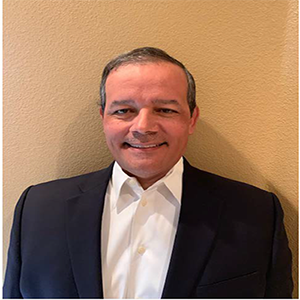
Room 122 03:00-04:00
There are trends taking place around us from aging workforce, 4 generations in the workplace, technology, skills gap, leadership gap, changing demographics, and others that are impacting organizations. The ATD professional in partnership with change management practitioners and their organizational leadership can enable their organizations to be better positioned than their competitors. The ATD practitioner has an important and active role to play in these changing times. This session will address the changes and what the ATD practitioner can do.

Room 127 03:00-04:00
What makes some lessons sticky and easy to remember, while others just drift away into the fog of forgetfulness days or even hours later? Radical Retention is the practice of making what you have to say stick with your team members or audience. Harnessing this practice has helped elevate service training and permitted leaders to more precisely communicate developmental processes at Orlando’s best hotel and the US’s ninth best resort overall, Four Seasons Resort Orlando. If you want to build a culture of learning retention it starts by doing something radical.
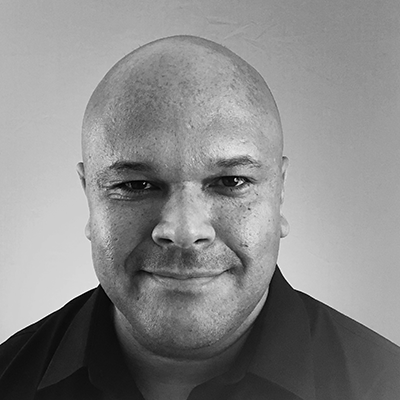
Alex is a CPLP and multimedia elearning developer with 12+ years of experience developing immersive learning experiences. He's a very active blogger and contributor to Articulate's Elearning Heroes Community, Udemy.com instructor, as well as winner of E-Learning Magazine's Learning Champion 2017 award for learning innovation. He has written several articles on virtual reality, augmented reality and workplace learning insights published at ATD's Tech Blog, and recognized industry publications like TD Magazine, Learning Solutions and Training Industry magazines. He's also known for his expertise in learning management systems, digital badging-blockchain strategies and Artificial Intelligence (AI) for workplace learning. Alex is a board member for the ATD Central Florida Chapter currently serving as President.

Chad L. Smith is an instructional designer and e-learning developer at Ultimate Medical Academy where he has been instrumental in the design, development, and implementation of technology driven initiatives that have brought UMA to the forefront of e-learning. Chad is also the CEO of Enterprise Pursuits an instructional design, and data analytics firm that works with corporations and nonprofits to advance technology in to their learning structure using emerging tech such as xAPI and data driven methodology. Mr. Smith holds a terminal degree in education with a focus on curriculum and instructional design from the University of West Florida.

Dale Leatherwood is a 25-year veteran of training and higher education with experience in leadership, distance learning, marketing and working with adult and non-traditional students. Dale’s leadership roles include both corporate training as well as college degree programs. Dale currently works with companies and working professionals to independently research, evaluate and select degree and educational programs to advance themselves and their organizations.

Denise is an information security professional devising a training, education and awareness program for the requirements of HITRUST certification. She also has a strong learning and change management background with a vast experience in instructional design, grant governance, communicating change, identifying risks, reducing costs, devising curriculum maps and learning plans, standing-up corporate universities, and other organizational initiatives.

Dr Mouriño is a highly motivated and experienced professional with 30+ years of leading key elements of organizational change projects. He is a USAF veteran who brings extensive experience in leadership development executive coaching,team development, diversity, learning & development, executive retreats and organizational change. He is a former ATD chapter president and National Advisors to Chapters member. He brings broad industry experience. He has served as a thought leader in his areas of focus and by enabling a learning organization by integrating organizational strategy with a corporate university infrastructure.

James Robbins has been telling stories from the stage for over 20 years on more than 2,500 stages. He is a rare mix of adventurer, motivational speaker, and management consultant and was recently named one of the Top 100 Leadership Speakers of 2018 by INC. Magazine. James is also the author of Nine Minutes on Monday, which was named the #1 Business Book of the Year by The Globe and Mail.

Kathy joined Guardian Life in May 2015. Rooted in her passionate belief that learning is a strategic asset that drives business results, she and her team are responsible for establishing a learning strategy for new financial advisors to build a successful career. Kathy is a results-driven talent development leader with a proven track record of applying learning strategy to solve business challenges. Under her leadership company initiatives have been recognized by Bersin by Deloitte, Training Magazine, Association for Talent Development, Working Mother Magazine and others. She was twice honored in Training Magazine as a “Top 40 under 40” and often speaks at conferences to share how her strategic approach to learning can be used across multiple industries.

An Organizational Behavior major, and a Positive Psychology Coach, with more than 15 years of experience in HR and training and development for organizations like AAA, Deloitte, and Lockheed Martin. Kendra’s mission is to transform how we live love and do business using the powerful science of Positive Psychology. She has been particularly drawn to the role of work plays in human flourishing. Her workshops aim to support healthier and happier work environments where employees and leaders are empowered to bring their best selves to work creating great employees, and even better humans.

Leah Yeatts is Principal Consultant at Lever Performance Consulting, where she specializes in workforce performance improvement and custom learning solutions. She holds a B.S. from the University of Florida and a M.S. in Organizational Performance and Workplace Learning from Boise State University. Leah has over a decade of experience working in corporate learning and education. Her experience includes employee performance gap analysis, eLearning development, instructional design, virtual training facilitation, job aid development, onboarding training design, and learning management system implementation. Leah lives in Tampa, Florida, and serves on the Board of Directors for the ATD, Florida Suncoast Chapter.

Mohammad has been speaking about Instructional design at different conferences for a few years. Recently, he won an award to present at Harvard Medical University where he talked about Instructional Design and Gamification. He also had a pleasure of speaking at the following eLearning forums:

Instead of climbing the ladder of success, Nick Stoyer simply decided to collect ladders. Having careers in everything from education, blue collar industries, retail, non-profit work, a local start-up, and agriculture to now leading Orlando’s top luxury hotel and resort- the Four Seasons Resort Orlando at Walt Disney World, his curiosity has led him to see, meet, and work with a host of characters in odd situations. An avid storyteller and engaging communicator, Nick has made it his life’s mission to inspire people to live and work with passion and purpose.

After earning a master’s degree in Curriculum & Instruction, and before spending the last decade as a Learning & Workplace Performance consultant, Robb Bingham spent several years in the professional dinner theatre circuit. Now as a training and communication coach, he talks practically about ways to apply some key communication and theatre arts principles and practices, to improve one’s authenticity, credibility, and relevancy when presenting to audiences of 1 to 1000. Mr. Bingham enjoys helping clients and classrooms full of learners get past their communication challenges to identify specific areas of focus and build a sense of greater credibility and confidence.
Learn
We learn from our wins as well as our failures. We learn from each other and we want to learn from you!
Ownership
We own what we do and why we do it. No idea is too big or too small but, we own our ideas to completion.
Value-add
Everything we do is to enhance the membership experience. We bring value to each other and to each member.
Excellence
We strive for excellence on everything we do. If it’s not something we don’t view as excellent, we don’t do it.
